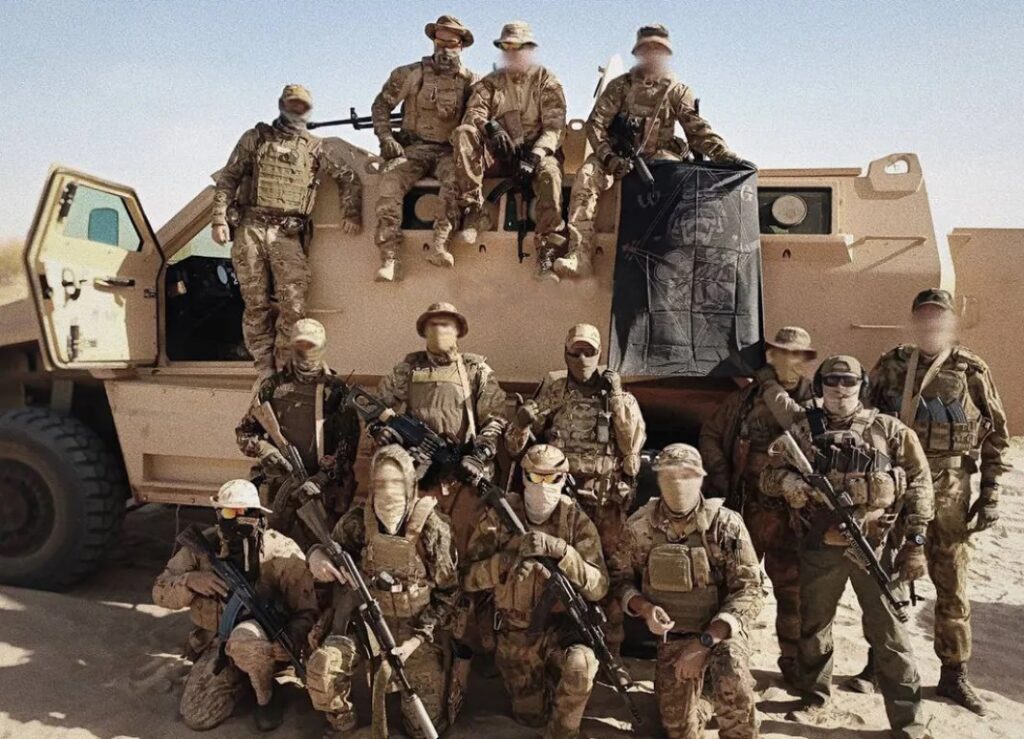When the infamous Russian mercenary Wagner Group announced its departure from Mali earlier this year, it claimed on social media that its “mission was accomplished.”
The reality is that in the 3 1/2 years of the counterterrorism and counterinsurgency operations it carried out, the group has had a disastrous impact on the Sahel country that continues to be regarded as the worldwide epicenter of terrorism.
“Despite the Wagner Group possessing a reputation for being battle-ready and claiming occasional public triumphs in Mali, its strategy has been plagued by a series of failures,” investigative organization The Sentry wrote in an August 27report.
The Kremlin replaced Wagner with its own paramilitary force called the Africa Corps, which is controlled by the Ministry of Defense. As much as 80% of the Africa Corps is made up of former Wagner mercenaries, according to a July 29 Timbuktu Institute report.
“Africa Corps inherits Wagner’s legacy of human rights violations, including extrajudicial killings and acts of torture,” the report said. “These abuses, often committed with impunity, fuel discontent among certain communities and jihadist recruitment that exploits various grievances.”
Through interviews with Malian military personnel, intelligence agents, and ministries of finance and mines officials, The Sentry reported that Malian Army personnel deeply resent the Russians. They claimed that Wagner fighters disrespected their command and control, and Malians blamed the Russians for security lapses and operational mistakes that resulted in personnel and equipment losses.
The mercenaries’ brutal tactics and haphazard approach to counterterrorism also made it impossible to earn the trust of the Malian people.
“Since Wagner’s arrival in Mali, there has been a significant increase in attacks against civilians and in civilian casualties linked to Malian security forces and allied militias,” the report stated. “In fact, the Wagner Group has been employing tactics that indiscriminately target civilians.”
Wagner fighters also reportedly engaged in sexual violence and mass executions, as evidenced by the 2022 Moura massacre, where more than 500 civilians were killed, including at least 300 men who were executed.
United Nations experts in early 2023 called for an independent investigation into flagrant human rights violations and “possible war crimes and crimes against humanity committed in Mali by government forces and the private military contractor known as the Wagner Group.”
The experts said that since 2021 they received “persistent and alarming accounts of horrific executions, mass graves, acts of torture, rape and sexual violence.” Repeated calls for an investigation in Mali have produced no results.
Some FAMa soldiers blamed the Moura massacre on the influence that Russian mercenaries had on their superiors.
“Without Wagner, there would have been no Moura,” one told The Sentry. “Not this scale, not this duration, not all the dead.”
Malians blame the Russians’ heavy-handed tactics for giving a recruiting boost to Tuareg separatist fighters and terrorists linked to al-Qaida and the Islamic State group.
Amadou Koufa, leader of al-Qaida’s Katiba Macina, a militant Islamist group, said in a 2024 interview with France24 that Russian brutality was the impetus for locals to join the fight to “defend their religion, their land and their goods.”
The Russians conducted drone strikes on weddings and funerals, while videos of Wagner fighters abusing Tuareg civilians circulated online, driving further discontent and fueling recruitment propaganda.
“Local community leaders in central Mali often complain that Wagner has failed to permanently improve the situation in their areas,” Royal United Services Institute researchers wrote in a January 2025 report.
Wagner suffered a crushing defeat in July 2024 when multiple terrorist groups attacked a large convoy of vehicles near the northeastern Malian village of Tinzaouatène. The militants claimed to have killed 84 Russian mercenaries and 47 FAMa soldiers.
Wagner’s relationship with FAMa deteriorated into mutual suspicion, according to The Sentry. Russian survivors accused Malian intelligence of underestimating rebel numbers and abandoning them mid-battle. In response, Malian officers accused Russians of ignoring chains of command, commandeering their vehicles and treating them with open racism.
“We have gone from the frying pan to the fire,” one senior officer told The Sentry.
Anger grew when militants attacked Bamako’s airport in September 2024, killing more than 100 people. Wagner units were stationed nearby but reportedly waited five hours to intervene.
“If you don’t pay them, they don’t move,” an airport guard told The Sentry.
Charles Cater, The Sentry’s director of investigations, said the Wagner Group’s intervention in Mali has been a failure.
“Heavy-handed and poorly informed counterterrorism operations have strengthened alliances among armed groups challenging the state, caused substantial battlefield losses for Wagner, and resulted in higher civilian casualties,” he said. “Ultimately, Wagner’s deployment has not served the interests of the people of Mali, the military government, or even the mercenary group itself.”
Justyna Gudzowska, The Sentry’s executive director, said that Mali’s experience should serve as a cautionary tale.
“As Moscow spreads its tentacles across the Sahel and rebrands under Africa Corps, it is critical to understand that Wagner was not the infallible fighting force and successful economic actor it pretended to be,” she said.
“If anything, the Malian example illustrates that the group failed on both fronts, and this should be a warning to other African clients who are considering bringing in the Ministry of Defense-backed Africa Corps.”

